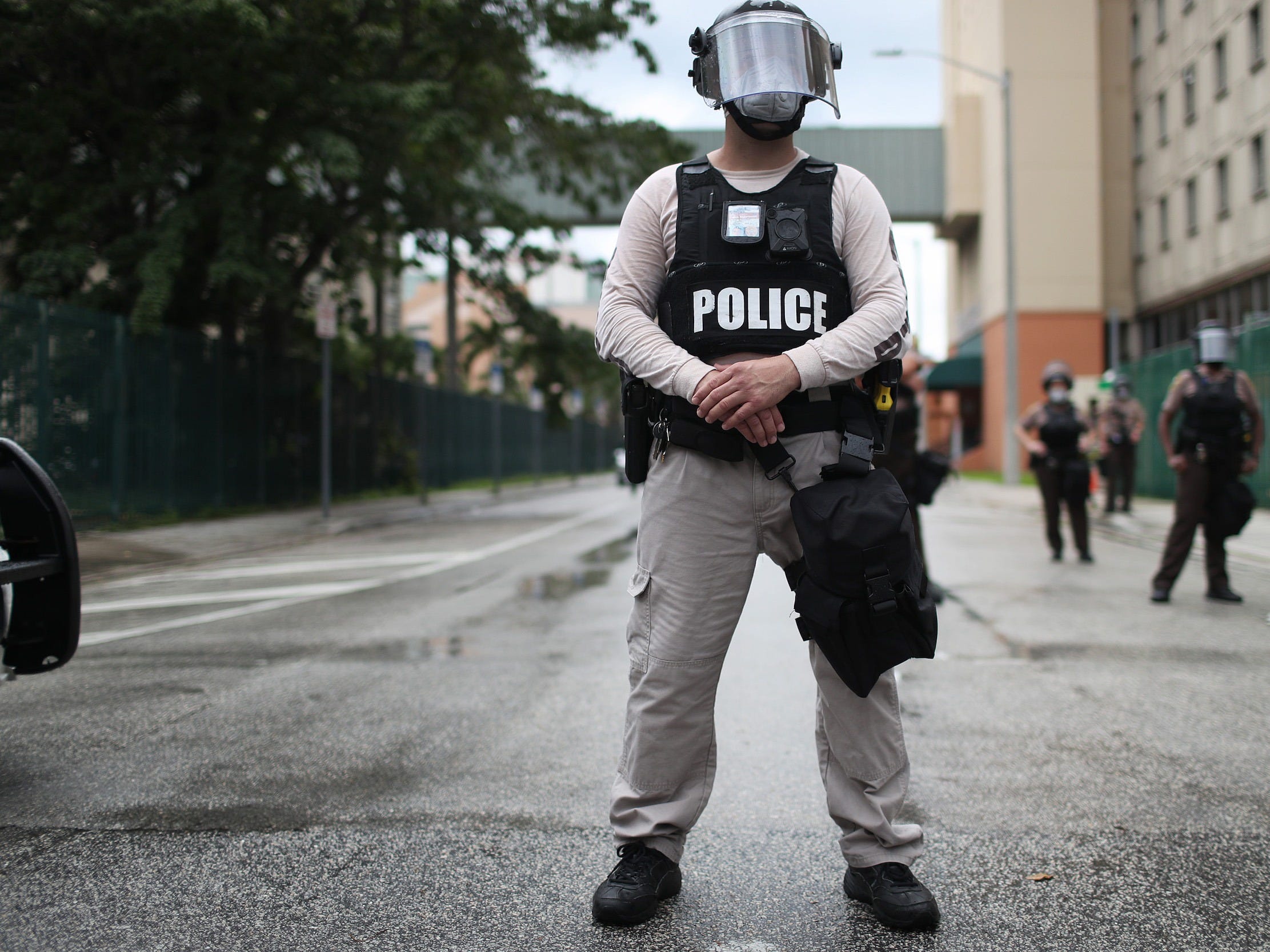- Two study authors have retracted their research after it was used in two opinion columns to dismiss systemic racism by police as a myth.
- The researchers said they were careless in their study’s methodology, and the lack of complete data on nationwide police-civilian interactions led to flawed results.
- In response to the retraction, conservative news outlets said the authors were only doing so to appease people who complained. The authors said this was not the case.
- Visit Insider’s homepage for more stories.
Two researchers who wrote a study on racial disparities in fatal police shootings have retracted their work after an opinion columnist at the Wall Street Journal misused the findings, they said.
The study in question was published in April 2019 in the journal Proceedings of the National Academy of Sciences, and it looked at whether a police officer’s race could predict the races of the civilians they fatally shot.
Studying a database of fatal shootings in 2015, Joseph Cesario of Michigan State University and David Johnson the University of Maryland concluded that there was no racial disparity across the cases.
After the study was published, the Wall Street Journal published an opinion column by Heather MacDonald, a conservative political commentator and author of the book “The War on Cops,” that cited the study. MacDonald pointed to the study as evidence that Black people are not more likely to be shot by police due to racism, both in the Wall Street Journal and City Journal.
In response, Cesario and Johnson told RetractionWatch they were retracting their research.
"We were careless when describing the inferences that could be made from our data. This led to the misuse of our article to support the position that the probability of being shot by police did not differ between Black and White Americans (MacDonald, 2019). To be clear, our work does not speak to this issue and should not be used to support such statements. We accordingly issued a correction to rectify this statement," they told RetractionWatch.
The authors rejected claims that they were caving to 'mob pressure'
A day later, Cesario and Johnson updated their statement after conservative news outlet the National Review asserted they only made the retraction because of pressure from the media. Cesario and Johnson said this isn't true.
"This was the sole reason for our decision to retract the article; this decision had nothing to do with political considerations, 'mob' pressure, threats to the authors, or distaste for the political views of people citing the work approvingly," they wrote in a statement.
They listed a series of caveats that undermined their findings
Cesario and Johnson said their methodology for the study was flawed because they lacked complete data on police officers' interactions with the public.
That lack included whether force was used in particular police-civilian situations. They explained that a person doesn't have to be fatally shot to prove racial disparities in police shootings, and said since they only analyzed the fatal incidents, their work ignores that police-related racial disparities come in other forms.
They also lacked the total number of interactions that actually occur across the country, so it's possible they misconstrued how often fatal police shootings, and therefore racial disparities in those shootings, happen.
"Although our data and statistical approach were valid to estimate the question we actually tested (the race of civilians fatally shot by police), given continued misuse of the article we felt the right decision was to retract the article rather than publish further corrections," they said.
- Read more:
- A microbiologist used a germ-filled petri dish to show how a mask catches droplets that spray from your mouth when you talk, cough, sing, and sneeze
- Scientists say the perfect hug is a medium-pressure squeeze for 20 seconds
- Police brutality imagery on social media can cause lasting trauma, especially for black people
